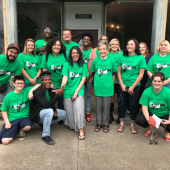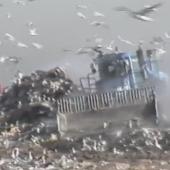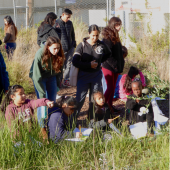
Abstract: In the summer of 2019, the We are All Connected urban-rural youth media program launched Something in Our Water, an eco-media documentary project that investigates the shared problem of water sustainability, public health, and climate change in their communities. This article discusses the transformative experience that the youth from New York City and the Clearfork Valley in the East Tennessee Appalachian mountains had as they learned about the history of multinational coal mine companies’ economic and environmental exploitation of the community, and the fierce and unequal power relations that continue to challenge environmental advocates today. With a focus on the perspectives of one of the Tennessee youth producers, the article reflects on the impact intergenerational learning and multicultural collaboration can have in nurturing future youth and community eco-media activists in Appalachia in the face of deeply rooted local and structural constraints. Through the process of documenting struggles in urban and rural communities, the youth team developed a deeper understanding of how the environmental justice movement cuts across differences to show how everyone is connected and can be empowered to take action.
Continue ReadingAbstract: In recent years, media scholars and educators have made an effort to address ecological issues in their work. Ecomedia literacy adapts the principles and practices of the media literacy movement in order to prepare the public to critically engage with the relationship between media and the environment. However, this article argues that the philosophical frameworks, on which existing approaches to media literacy education are founded, are limited. The field’s reliance on traditions of constructivism and cultural studies allows learners to engage with ideas, but not things. The article argues that an ecomedia literacy that draws from speculative realism—in particular, in recognizing the reality of non-human things, emphasizing materiality, and challenging the nature/culture divide—will more effectively prepare the public to critically engage and practically respond to pressing ecological issues such as climate change.
Continue Reading
While teaching about climate change in K-12 schools often focuses on the catastrophic crises it is causing on a global scale, for students from poor and historically marginalized communities a pedagogy of environmental justice centers their own local neighborhoods, schools, and homes as sites for investigation and action. The Educational Video Center (EVC) in New York City has practiced this critical pedagogy for over 30 years developing students’ media literacy and civic engagement as they learn to question and bear witness to the toxic environmental conditions in their communities. Links to EVC student produced documentaries spanning three decades chronicle the impact of garbage landfills in the ground, sanitation truck fumes in the air, lead dust and black mold in the walls of their public housing apartments. Through these inquiries, students learn how such environmental pollution is linked to disproportionately high rates of lead poisoning and chronic asthma among low income communities of color. As a form of participatory action research, they not only learn to use the power of media to educate the public about the inequitable policies that produce these environmental and public health crises. They also use their videos to make a call to action for greater accountability and sustainable environmental justice.
Continue Reading
This essay explores the role of critical pedagogy in environmental justice education. We discuss the need for teaching a love of nature (biophilia) as an entry point for developing a caring relationship and sense of stewardship with the natural world. Place-based education and ecopedagogy offer liberatory potential to make education more transformative and focused on the intersections between social and environmental justice. After discussing theoretical approaches of ecopedagogy and indigenous perspectives, we describe a project in which a principal converts the hardscape at two schools into natural habitats and a new teacher engages her students in ecopedagogy.
Continue Reading